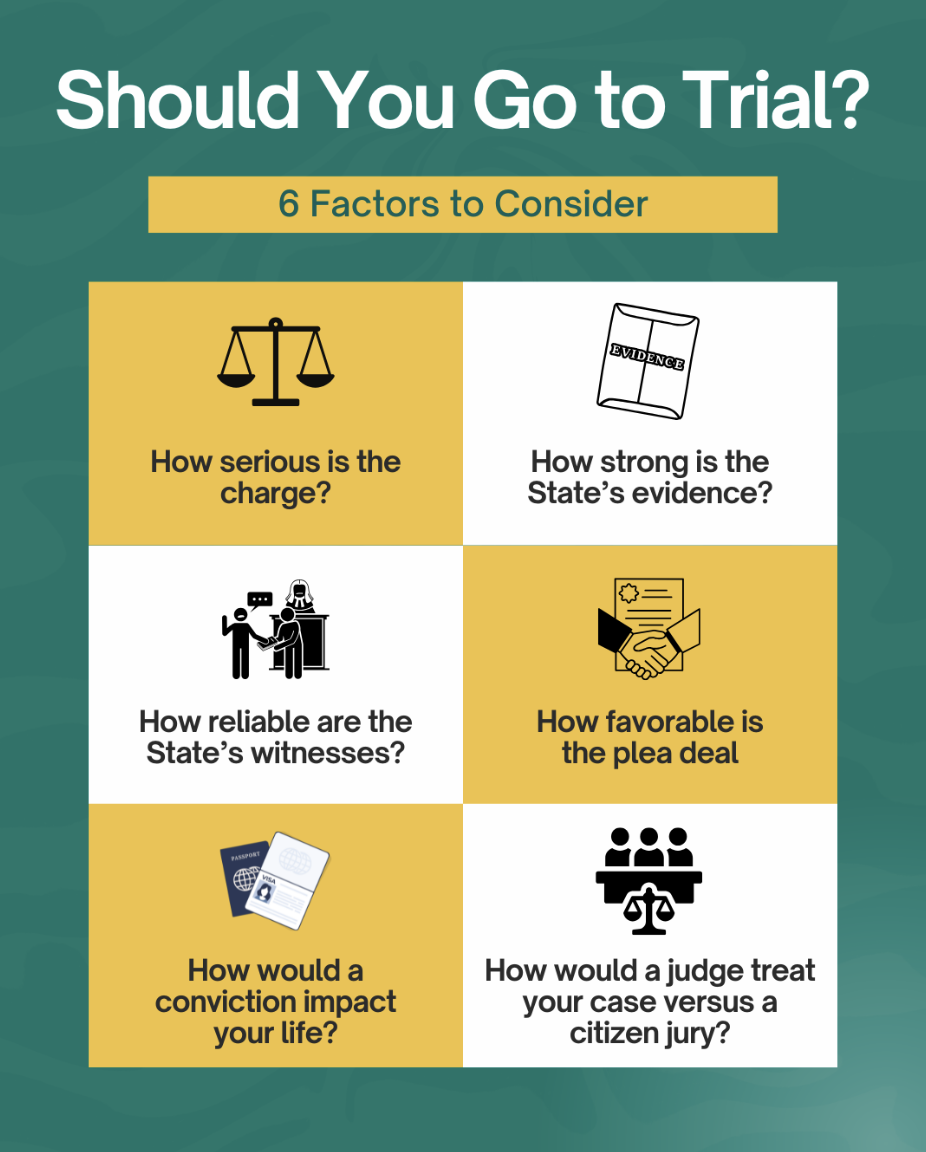When you’re staring down criminal charges in Indiana, one of the most important decisions you’ll face is whether or not to take your case to trial.
It’s not a decision you make lightly or make alone. At the Marc Lopez Law Firm, we’ve helped countless clients navigate this exact moment. Whether you’re looking at a low-level misdemeanor or a serious felony, we break down the decision-making process step by step, so you understand your rights, your risks, and your options.
Here’s how we help clients figure out if trial is the right move.
What Are You Charged With?
One of the first things you need to understand is the nature of the charge against you. Are you facing a misdemeanor or a felony? The classification matters because it impacts the potential penalties and the overall risk involved. Whether it makes sense to go to trial depends on many factors, but knowing the severity of the charge is a key starting point in evaluating your options.
What Is the State Alleging Happened?
Not all accusations are created equal.
Is there strong evidence? Are there witnesses? Is there video or physical proof linking you to the scene? Are there holes or inconsistencies in the prosecutor’s story?
We’ve seen cases where an alleged victim in a domestic battery charge decides not to cooperate with the State or change their story entirely. That alone can collapse the entire case. But if there are eyewitnesses, hospital records, and photos of injuries, that’s a much steeper hill to climb.
Every detail counts. Our job is to go through all of it and find out whether there’s room for reasonable doubt.

How Strong Is the Evidence?
Let’s break this down even further. Ask yourself and your lawyer:
- Are the witnesses credible?
- Is there a lack of physical evidence?
- Is the case based mostly on assumptions?
- Is there DNA, forensics, or video?
- Are the police reports consistent?
If the State’s case is flimsy or circumstantial, trial may give you a real opportunity to beat the charges. But if the facts are well-documented and tough to dispute, a jury might not see things your way. These are the kinds of issues your defense attorney needs to help you understand.
What’s the Plea Deal?
The offer on the table can completely change the equation.
We look at things like:
- Does the plea avoid jail time?
- Will you be stuck with a criminal record?
- Will it affect your job, housing, or immigration status?
- Is the plea worse than what you might get if you lose at trial?
Sometimes, the plea is fair. Other times, it’s not. If you’re innocent or the deal doesn’t reflect the facts, you may have to go to trial. The key is to make that choice with full awareness of what’s at stake.
What’s Going On in Your Life?
You’re not just a case number. You have a job, a family, and a future. All of that matters.
Personal circumstances can influence your decision:
- If you’re not a U.S. citizen, a conviction could lead to deportation
- If you work in healthcare, education, or government, even a misdemeanor can end your career
- If you’re facing a protective order, a conviction might limit contact with your family
All of these factors weigh into whether trial or a plea is the better option.
Who Should Decide Your Fate: Judge or Jury?
If you do go to trial, you’ll need to decide whether to go before a judge or a jury.
In Indiana, felonies and misdemeanor cases allow for a jury trial. That means six jurors for misdemeanors and Level 6 felonies, and twelve jurors for more serious charges.
A jury trial might make sense if you want different perspectives, or if emotion plays a big role in your defense.
A bench trial, where the judge alone decides guilt or innocence, might be better if the case depends on legal nuance or the rules of evidence. Some judges are more skeptical of the State than others. Your attorney should have a good idea which route makes more sense for your case.
So… Should You Go to Trial?
The honest answer? It depends.
You need to consider:
- The charges and possible penalties
- The strength of the State’s evidence
- The plea deal on the table
- The impact a conviction would have on your life
- The credibility of witnesses
- Whether a jury or judge is better suited to hear your case
No one-size-fits-all answer exists here. Every case is unique. That’s why you need a criminal defense attorney who’s not afraid of trial, and who will explain the pros and cons of every option in plain English.
Make the Right Call
At the Marc Lopez Law Firm, we prepare every case like it’s going to trial because sometimes, that’s exactly what needs to happen.
We don’t pressure people into bad plea deals. We give you the tools and the advice you need to make the best decision for your future.
If you’re facing criminal charges in Indiana and you’re not sure what to do next, call us at 317-632-3642. Let’s talk through your case and help you figure out your best move.
And remember: always plead the 5th.



